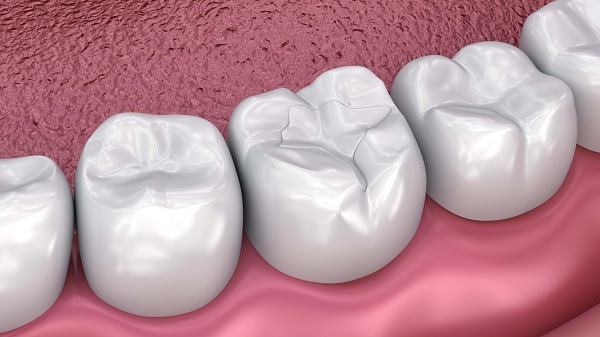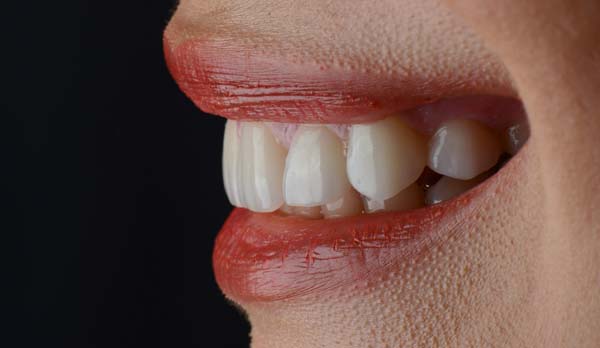How Does Dental Sealant Treatment Work?

The dentist may have mentioned something about getting dental sealants as a preventive treatment for your kids. This preventive treatment stops tooth decay, but how does it work? Continue reading to learn about dental sealant treatment and how it works to protect teeth.
The need for preventive care
In society today, particularly in the United States, there are varieties of sugary liquids in several forms. Many parents feed their children fermented carbs and sugary liquids. These foods and drinks, as well as chewable vitamins and sugary snacks, stick to the chewing surfaces of teeth. These sugars feed the bacteria in the mouth, which produce plaques that cause cavities, especially on the first and second molars.
Dental sealants were introduced several decades ago to prevent cavities in children and young adults. According to the American Dental Association, applying sealants to permanent molars can reduce the occurrence of cavities by up to 80 percent. Generally, children hardly brush their teeth thoroughly because they lack dexterity. Consequently, the hard-to-reach areas are neglected.
How sealants prevent cavities
Dental sealants cover all the nooks and crannies of the teeth that may be prone to tooth decay. Some areas of the teeth are inaccessible, regardless of the energy one puts into brushing. The grooves on the molars are prone to this issue. Due to this, they are more prone to cavities than other teeth. The sealant material fills and adheres to the tooth, making it smooth and less prone to cavities.
Plastic resin is the material of choice for sealing the tooth. Not only is it malleable enough to fit into the pits and fissures of the teeth, but it also prevents the entry of bacteria. Ultimately, a sealant ensures that the tooth continues to retain its natural form and structural integrity.
Sealants do not stop bacteria only, but they also stop food particles and sugars. After eating, food debris can get trapped in hard-to-reach areas. It is difficult to clean them out because teeth grooves are small, and some people have pits that are deeper than usual. Only dental cleaning performed by the dentist can get to those areas.
A dental sealant stops food from getting trapped in the first place. This is why dentists suggest giving children sealants as soon as their molars erupt. Even if the food debris gets trapped before the application, there is no need to worry. The dentist will clean the teeth properly before applying dental sealants.
Are dental sealants failsafe?
Certainly, dental sealants do not provide 100 percent protection for teeth. The sealant may need to be reapplied over time if it gets damaged. Therefore, parents must take their children to the dentist every six months and help them practice good oral hygiene. Poor oral habits like ice chewing or nail biting can damage the sealant prematurely. With proper care, the sealant can protect the molars for up to a decade.
In conclusion
If you have a child that might benefit from dental sealants, bring them to the dental office for a checkup. The dentist will examine the child’s teeth and determine if they need preventive treatment.
Request an appointment here: https://www.perfectchoicedental.com or call Perfect Choice Dental P.C. - Brian Overmyer, D.D.S. at (815) 477-3700 for an appointment in our Crystal Lake office.
Check out what others are saying about our services on Yelp: Read our Yelp reviews.
Recent Posts
Dental staining can go away with a smile makeover. Your teeth are among the first things people see. That is why correcting any blemish is important. The correct treatments can rejuvenate your teeth. If you want to know how a smile makeover can brighten your discolored teeth, here are the details.Regular in-office teeth-whitening treatments cannot…
If you are looking to get an implant restoration from an implant dentist, one of the questions you might have is how the option differs from your natural teeth. Dental implants have been touted as the most reliable and natural-looking option available for replacing missing teeth. The restoration comes with an artificial tooth root that…
Preventive dentistry is a branch of dentistry that focuses on protecting your mouth against common dental issues like tooth decay and gum disease. It include simple things that you can do independently, like practicing oral hygiene, and procedures performed by dentists, like dental cleanings.Taking good care of your mouth makes you less likely to develop…
A general dentist might recommend a dental implant if you have lost a tooth. This is the only tooth replacement option that stops the bone tissue loss that takes place when teeth fall out. This loss is the result of the structures that once held the lost tooth in place no longer getting the stimulation…


